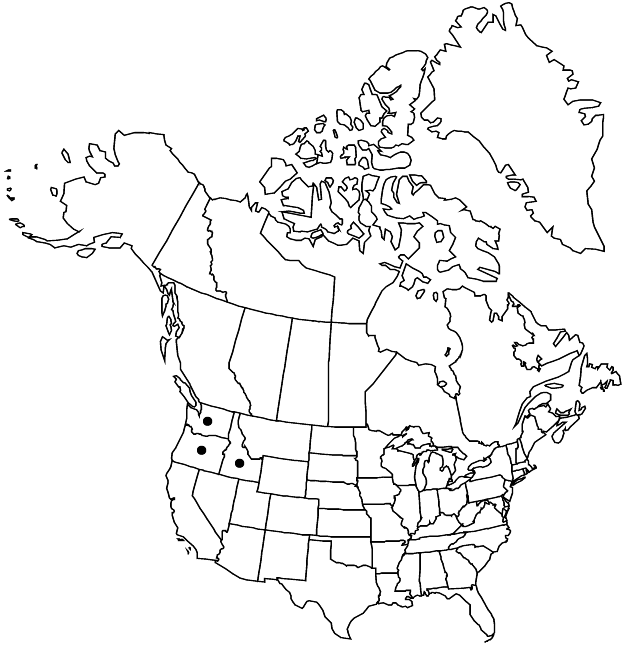Eriogonum umbellatum var. devestivum
Great Basin Naturalist 32: 115. 1972.
Herbs, spreading mats, 1–3.5 × 2–6 dm. Aerial flowering stems erect, 1.5–2.5 dm, thinly floccose or glabrous, without one or more leaflike bracts ca. midlength. Leaves in loose rosettes; blade broadly elliptic, 1.5–3(–4) × 1–1.5 cm, glabrous on both surfaces at full anthesis, margins plane. Inflorescences compound-umbellate, branched 2–4 times; branches thinly floccose or glabrous, without a whorl of bracts ca. midlength; involucral tubes 2–3.5 mm, lobes 1–2.5 mm. Flowers 4–7 mm; perianth bright yellow.
Phenology: Flowering Jun–Sep.
Habitat: Sandy to gravelly flats and slopes, sagebrush communities, montane conifer woodlands
Elevation: 800-1800 m
Distribution

Idaho, Oreg., Wash.
Discussion
Variety devestivum is a glabrous-leaved expression obviously related to var. ellipticum. It is infrequently encountered in Asotin and Columbia counties, Washington; Baker, Grant, and Union counties, Oregon; and Ada, Adams, Blaine, Lemhi, Valley, and Washington counties, Idaho. The plants are bright and showy and would be attractive in the garden.
Selected References
None.